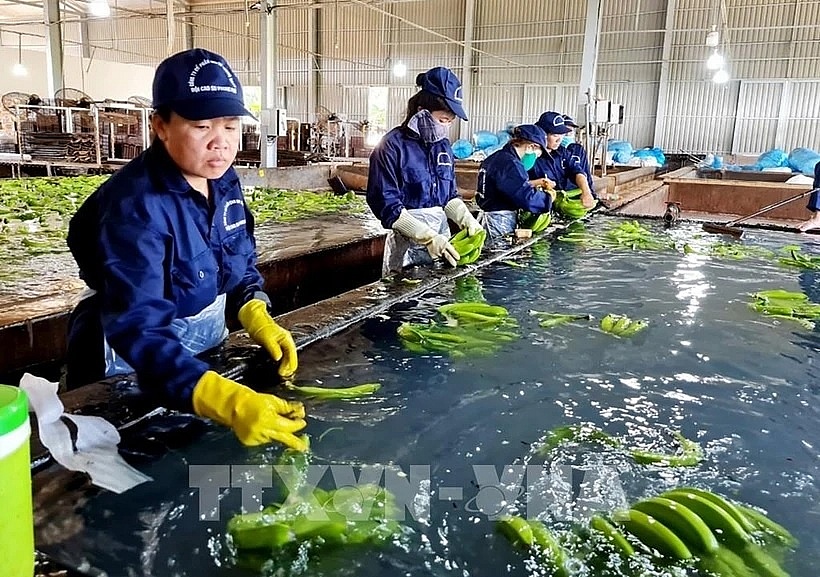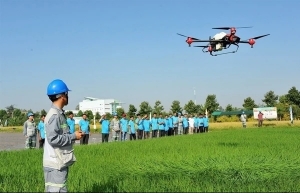Japan proposes Vietnam revise maximum residue limits for some agricultural chemicals
 |
| Japan proposes Vietnam revise maximum residue limits for some agricultural chemicals. (Photo: VNA) |
Hanoi – Japan has suggested Vietnam revise the maximum residue limits (MRLs) for certain agricultural chemicals, according to the Office of the Vietnam Sanitary and Phytosanitary Notification Authority and Enquiry Point (SPS Vietnam).
The office on June 24 sent a document to the Plant Protection Department under the Vietnamese Ministry of Agriculture and Rural Development regarding the proposal.
Accordingly, Japan suggested increasing the MRLs of Isopyrazam, a broad-spectrum foliar fungicide; and Hexaconazole, a sterol biosynthesis inhibitor; with the specific revisions depending on products.
However, for Benthiavalicarb-isopropyl, a new valinamide carbamate type of fungicide, the country said its limits should be reduced for spring onion (including leek), eggplant and other nightshade vegetables (except for tomato and sweet pepper), and yellow and green lemon.
Meanwhile, the limits for spinach and herbs (except for watercress, chives, parsley stems and leaves, and celery stems and leaves) will rise from 0 ppm to 10 ppm.
 | Agricultural exporters face hardship amid escalating costs Surging input costs show little sign of abatement, causing concern among agricultural producers. |
 | Hanoi to allocate funds for drone spraying of chemicals The Hanoi’s People's Committee will allocate approximately 11 billion VND (432,100 USD) to support organisations and individuals in a two-year trial using unmanned aerial vehicles, or drones, to spray chemicals on agricultural land to protect crops. |
What the stars mean:
★ Poor ★ ★ Promising ★★★ Good ★★★★ Very good ★★★★★ Exceptional
Related Contents
Latest News
More News
- Tet event in Japan celebrates success of 14th National Party Congress (January 25, 2026 | 10:04)
- 14th National Party Congress wraps up with success (January 25, 2026 | 09:49)
- Congratulations from VFF Central Committee's int’l partners to 14th National Party Congress (January 25, 2026 | 09:46)
- List of newly-elected members of 14th Political Bureau announced (January 23, 2026 | 16:27)
- 14th Party Central Committee unanimously elects To Lam as General Secretary (January 23, 2026 | 16:22)
- List of members of 14th Party Central Committee announced (January 23, 2026 | 09:12)
- Highlights of fourth working day of 14th National Party Congress (January 23, 2026 | 09:06)
- Press provides timely, accurate coverage of 14th National Party Congress (January 22, 2026 | 09:49)
- Press release on second working day of 14th National Party Congress (January 22, 2026 | 09:19)
- Minister sets out key directions to promote intrinsic strength of Vietnamese culture (January 22, 2026 | 09:16)

 Tag:
Tag:




















 Mobile Version
Mobile Version